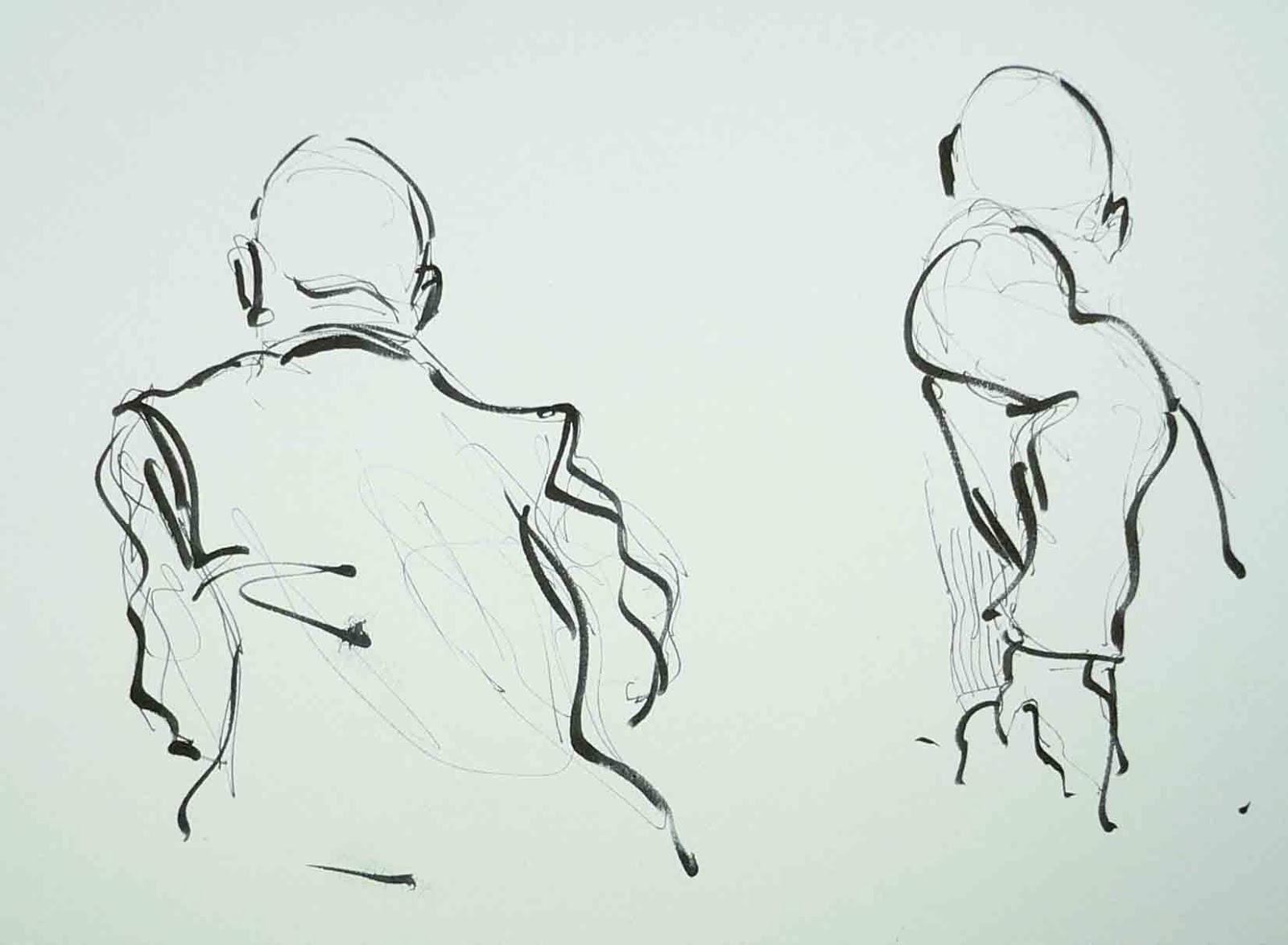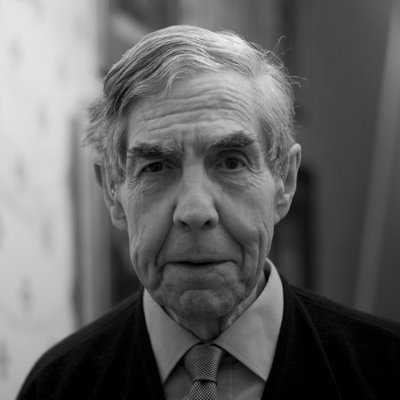The miscarriage of justice watchdog has rejected an application authored by a Court of Appeal judge arguing that the case raised issues appropriate for the Supreme Court ‘if necessary’. As has been reported previously (see below), Sir Henry Brooke had been helping the family of a man who claims to have been wrongly convicted of false sexual allegations made by a 16-year old girl with a history of mental instability.
The man’s family has shared the reasons provided by the Criminal Cases Review Commission (CCRC) with the Justice Gap and Private Eye which this week featured the case described by Sir Henry ‘extremely worrying’ (see Dog with no bite). The celebrated judge, who died in January 2018, had written a 25-page application to the miscarriage of justice watchdog on behalf of the man who had been sentenced at Liverpool Crown Court in July, 2014.
 It has taken the watchdog close to three years for the CCRC to reject the case. The man referred to here as John Smith for legal reasons, now 68 years old, is currently serving a 15 year sentence at HMP Wymott, Preston as a result of allegations of rape and sexual assault made by a 16 year old girl who has a history of mental instability.
It has taken the watchdog close to three years for the CCRC to reject the case. The man referred to here as John Smith for legal reasons, now 68 years old, is currently serving a 15 year sentence at HMP Wymott, Preston as a result of allegations of rape and sexual assault made by a 16 year old girl who has a history of mental instability.
Four years ago the man’s wife wrote an open letter to the then prime minister David Cameron. The letter was published in the prisoners’ newspaper Inside Times and the Justice Gap in April 2016.
‘We have been sacrificed,’ the letter began. ‘Our lives stolen and our whole family put into trauma. We brought up our family to be kind, caring, human beings and to have morals and to trust in the police and justice system. We were so wrong. The first time me and my family ever needed the police to protect us, they completely destroyed us, without a second thought or care for the lifelong consequences.’
The man’s wife, Sharon (not her real name) told the Justice Gap that the family was devastated by the CCRC’s decision. ‘It’s outrageous that they can put a family through and not be accountable for trauma created by all this wait. It doesn’t take almost three years to make a decision like this.’
Sir Henry, who died at the age of 81 years in January 2018, was (in the words of one obituary) well-known for his ‘lifelong belief in the importance of doing the right thing’. According to Sharon, the letter had been written ‘out of sheer desperation’ and shortly after it appeared on the Justice Gap, it appeared on Sir Henry’s website (here).
After the former vice-president of the Court of Appeal was contacted by the man’s wife, he offered to take a look at the papers. Sir Henry became so convicted of the man’s innocence that he wrote the application to the CCRC calling on group to take another look at what he called ‘an extremely worrying case’.
His application dated April 24, 2017 began: ‘These submissions have been prepared for XXX by a retired Court of Appeal judge who does not wish any publicity to be given to his involvement in the matter.’ Sir Henry went on to say that he would be ‘willing to disclose his identity in confidence to the CCRC if the CCRC considers this to be necessary’.
Fit for the Supreme Court
According to the former lord justice of appeal, it was ‘more important than ever that the CCRC and the Court of Appeal should be willing to intervene if a defendant can be shown to have been badly let down by one or more of his lawyers to the extent that he did not have a fair trial’. ‘For these reasons the issues raised by this case are, indeed, fit for the consideration of the UK Supreme Court, if necessary,’ he added. Nine months after the application arrived at the CCRC’s Birmingham offices, Sir Henry went in for a cardiac operation which he didn’t survive.
In his application, Sir Henry explains why the court’s treatment of historic sexual abuse allegations can lead to miscarriages of justice and recommended that the case, which has been rejected by the Court of Appeal and knocked back twice by the CCRC, should be considered by the highest court in the land.
Sir Henry argued that the man had been badly let down by an incompetent lawyer who failed to properly prepare his defence which left the jury with ‘a wholly one-sided picture’. The solicitor failed to present evidence to the court of the 16-year-old accuser’s mental health problems and the long history of mental instability which affected her grandmother, great-aunt and aunt.
Sir Henry listed all the evidence including correspondence with lawyers, witness statements, transcripts of hearings, notes from police interviews with the accuser and the accused, disclosure reports as well correspondence with the Criminal Injuries Compensation Authority. Critically, he also read documents relating to the girl’s mental health including her CAMHS (Child and Adolescent Mental Health Service) report. The jury never got to hear that she was referred to a residential centre which specialises in young people with complex mental health disorders after threatening to throw herself in front of a train. It was when she was there as an inpatient for a number of months that she made (as Sir Henry noted) ‘a number of different allegations about the way she been abused not only by XXXX but also by other men’.
The CCRC has faced some criticism for a recent policy of shortening the documents known as ‘statements of reason’ rejecting cases. Previously such documents used to be substantial if nothing else, however the CCRC dismissing Sir Henry’s 25-page application features an ‘analysis’ that covers three sides of A4 and asserts ‘no criticism can properly be made of the tactical decisions’ made by the man’s lawyers.
‘The CCRC appears to have completely ignored the fact that had the jury heard all the facts they may well have reached a different decision,’ comments Glyn Maddocks QC who represents the man’s family. ‘The truth will simply remain buried and justice will yet agin not be served.’
‘The most depressing thing – apart from the actual decision – is that the CCRC appears to have taken nearly three years to turn down the application, and to have done very little additional investigation in that time,’ says the barrister Matthew Scott who has also been advising the family. ‘In particular, they have done nothing to investigate Sir Henry’s number one point, that the complainant’s mental health problems – which the judge allowed the jury to assume might have been caused by the alleged sexual abuse – were in fact shared by other members of her family, and thus might well have been genetic in origin.’
Sharon has not seen her husband since February 23rd. ‘We decided that visiting was a bad idea for all of us because of coronavirus and it’s more important to keep everyone safe,’ she told the Justice Gap. ‘So I cancelled all the visits I had booked for everyone until all this was over. Prisons are not very clean, they’re unhygienic & overcrowded & breeding grounds for viruses and illnesses.’
Her husband’s wing was put on lockdown for 14 days at the beginning of the month after a prisoner was tested positive. ‘We are all worried sick,’ she said. ‘He is pretty fit and well so we are all hoping & praying he will not contract it. I didn’t think things could get any worse and then this happens.’

Isobel Williams: Supreme Court sketch
Jon Robins on how even the intervention of an Appeal Court Judge has failed to help a family caught up in a child sexual abuse conviction. This article first appeared on Byline.com in April 2019.
Three years ago ‘Sharon’ wrote a letter to the then prime minister David Cameron. Her 67-year-old husband, who can not be named for legal reasons, was serving 15 years at HMP Wymott, Preston as a result of allegations of rape made by a 16-year old girl with a history of mental instability. He is still there.
The letter was published in the prisoners’ newspaper Inside Times in April 2016 and shortly after on the Justice Gap.
“We have been sacrificed,” the letter began. “Our lives stolen and our whole family put into trauma. We brought up our family to be kind, caring, human beings and to have morals and to trust in the police and justice system. We were so wrong. The first time me and my family ever needed the police to protect us, they completely destroyed us, without a second thought or care for the lifelong consequences.”
My husband is a good and decent man. He faces spending his remaining years in prison wrongly convicted. We need to get him out.
I met Sharon for the first time last May. She came to the Westminster launch of my book Guilty Until Proven Innocent (Biteback 2018). “You probably won’t remember. I wrote a letter to David Cameron,” she said by way of an introduction.
I remembered it well. Our jails are filling up with men of pensionable age convicted of offences allegedly committed decades earlier. The over-sixties are the fastest growing section of the prison population. There are three times as many as there were 16 years ago.
A Former Lord Justice of Appeal Steps in
Most sexual abuse happens in secret. There are no witnesses and, in the case of historical allegations, no physical evidence. All too often abusers are never brought to justice and victims are forced to live with the burden of their trauma for the rest of their lives.
A false allegation of abuse can also ruin lives. Sharon’s letter powerfully explained how it is possible for an imperfect justice system to allow for a conviction in the absence of evidence. It is a point made powerfully by the barrister Matthew Scott yesterday in his analysis of an alarming decision by the Court of Appeal to upheld the conviction of a grandfather for abusing his granddaughter despite the granddaughter telling the court, under oath, that he was innocent.
When I met Sharon she had a folder with her. She asked if I would take a look at an application to the miscarriage of justice watchdog. I can’t recall my response but I am guessing it was a non-committal: “Sure; but it might take some time.” Then she added. “It has been written by a former Court of Appeal judge.” Who? “Sir Henry Brooke.”
 Sir Henry, who died at the age of 81 years last January, was (in the words of one obituary noted) well known for his “lifelong belief in the importance of doing the right thing”. Even so it seemed improbable that a well respected appeal judge in his 80s would be helping the family of a man accused of the most horrendous sexual offences. It took a little while for the penny to drop.
Sir Henry, who died at the age of 81 years last January, was (in the words of one obituary noted) well known for his “lifelong belief in the importance of doing the right thing”. Even so it seemed improbable that a well respected appeal judge in his 80s would be helping the family of a man accused of the most horrendous sexual offences. It took a little while for the penny to drop.
“The letter was written out of sheer desperation,” Sharon later told me. After her husband was sent to prison, Linda scoured the internet for help and support. She came across Sir Henry’s website and was drawn to a section called ‘Stories of injustice’. She read ‘Story #4: Sharon’.
The solicitor failed to present evidence to the court of the 16-year-old accuser’s mental health problems and the long history of mental instability which affected her grandmother, great-aunt and aunt.
Unlike many of his judicial brethren, Sir Henry was a technology enthusiast and, in later years, a prodigious blogger. Shortly after Sharon’s letter appeared on the Justice Gap, it appeared on Sir Henry’s website (here). “I couldn’t believe it. It was me. I was in shock,” she recalls. “‘Sharon’” isn’t my real name. So I just emailed him and straightaway he wanted to know what happened.”
Sir Henry offered to take a look at the papers. There is a huge amount. He read everything: correspondence with lawyers, witness statements, transcripts of hearings, notes from police interviews with the accuser and the accused, disclosure reports as well correspondence with the Criminal Injuries Compensation Authority. Critically, he also read documents relating to the girl’s mental health including her CAMHS (Child and Adolescent Mental Health Service) report.
The Last Chance
If you are the victim of a miscarriage of justice and you have exhausted your right to appeal, then the only avenue left to clear your name is through an application to the Criminal Cases Review Commission.
Convinced by what he had read, Sir Henry went on to write a 25-page application to the miscarriage of justice watchdog on behalf of the family. Sir Henry called on the CCRC to refer this “extremely worrying case” back to the court that he once presided over. “[He] did not receive a fair trial,” he wrote. “All relevant factual issues were not placed before the jury, and his conviction is accordingly unsafe.”
Sir Henry spent a decade as a Lord Justice of Appeal and was vice-president of the civil court before retiring in 2006. He explained why the court’s treatment of historic sexual abuse allegations can lead to miscarriages of justice and recommended that the case, which has been rejected by the Court of Appeal and knocked back twice by the CCRC, should be considered by the Supreme Court if necessary.
Over the last quarter of a century, Sir Henry argued that governments had undermined the protections put in place by the courts in historic sexual abuse cases to ‘ensure that the innocent were not wrongly convicted’.

“It is more important than ever that the CCRC and the Court of Appeal should be willing to intervene if a defendant can be shown to have been badly let down by one or more of his lawyers to the extent that he did not have a fair trial,” he wrote. “For these reasons the issues raised by this case are, indeed, fit for the consideration of the UK Supreme Court, if necessary.”
Sir Henry argued that the man was badly let down by an incompetent lawyer who failed to properly prepare his defence which left the jury with “a wholly one-sided picture”. That said, he also obliquely mentions the impact of a two-decade freeze in legal aid rates (“increasing pressure on the economic viability of small criminal legal aid practices”).The solicitor failed to present evidence to the court of the 16-year-old accuser’s mental health problems and the long history of mental instability which affected her grandmother, great-aunt and aunt.
So the jury never got to hear that she was referred to a residential centre which specialises in young people with complex mental health disorders after threatening to throw herself in front of a train. It was when she was there as an inpatient for a number of months that she made (as Sir Henry noted) “a number of different allegations about the way she been abused not only by XXXX but also by other men”.
Two Years Waiting
Sharon met Sir Henry Brooke once at a church service in London. “He emailed me, said he would be there and suggested I say hello. I shook his hand and said: ‘Thanks very much, for all your doing for me.’”
We brought up our family to be kind, caring, human beings and to have morals and to trust in the police and justice system. We were so wrong.
She recalls Sir Henry as “so kind and sympathetic. He knew what was going on.” In the CCRC application, Sir Henry referred to himself as “a retired Court of Appeal judge” who had “conducted many criminal trials” and who had “sat frequently” in the criminal division of the Court of Appeal. In the application, he expressly asked for no publicity.
“As a family we are deeply grateful for his support,” Sharon tells me. “My husband is a good and decent man. He faces spending his remaining years in prison wrongly convicted. We need to get him out. I spend every moment of every day thinking of how to get him out. We are coming up to his fifth Easter in prison. Meanwhile, the CCRC has sat on this case for two years. They have had an application written by a Court of Appeal judge. What more do they need?”
Names and some details have been changed







